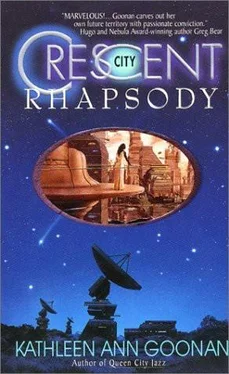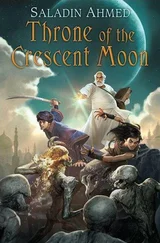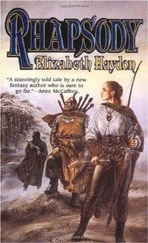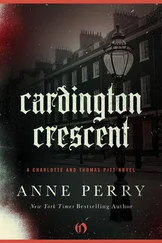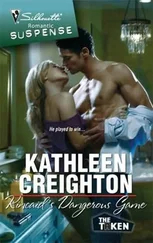He knew she’d narrowly avoided calling it a decrepit old shack. He nodded.
“And do you still spend all your time studying that radio astronomy data?”
She’d hated that. Apparently, she had thought it some sort of bachelor pursuit that he would outgrow, even though he had been forty when they got married. He didn’t spend as much time looking at the stars through telescopes as she had imagined he would; that seemed much more romantic to her. But stars and space had a lot more to say than could be seen in the visible spectrum. Zeb spent his time online, traveling, or teaching. He had no hobbies or outside interests; he didn’t watch television and he didn’t go to the movies and he didn’t read fiction. He still wondered how two such dissimilar people had ever considered marriage. Then she smiled—just a bit—and he remembered.
“Pretty much.” He looked at his watch. “Tell Jim hi.”
He had hurried out into the cold air gratefully. He took his gloves and hat from his pockets, pulled them on, checked the chains on his truck tires, and got in. The bed was full of sandbags for traction, but he left a little too quickly and the back wheels fishtailed on the icy unplowed side street. That’s right, he thought. Hurry away from your latest failure.
Now, safe in relatively unpopulated territory, he finished his cigarette, tossed the butt out the window, and cranked it up. It had taken him an hour of careful driving to get to the lower slopes of Angel’s Rest. A student’s father owned the field they built their antenna in. It had taken most of the fall to put it up. Zeb had agreed to check the constantly incoming data over the break. Of course he was up there as often as time allowed. He loved the thing. So big, so seemingly primitive, yet the same kind of homemade setup with which the existence of pulsars had been discovered.
He put on his turn signal for no one and swung between two fence posts onto a frozen dirt road beneath an unbroken crust of icy snow. He pushed the four-wheel drive button and shifted into low. The newer trucks did all this on voice command, but he preferred his old dependable model, a real antique from 1971 with no sensitive computerized components, bought for fifty bucks from a widow whose husband had kept it pristine, and repaired it with parts foraged from junked trucks he kept on the slope behind his house. He’d bolted on a global positioning system that put maps on a small screen next to the radio; that was the extent of its modernization.
As the truck labored up the mountain, a doe leaped through his headlight beam, as if she’d been waiting for a car to show her a good crossing. A clump of snow fell from a fir bow and his wipers whirred. If Terri had been here, she would have played classical music, but he preferred the sound of the wheels grabbing the snow, the steady smooth growl of the transmission. The raw data. It had its own poetry. Or, if not poetry, at least a kind of honesty.
Far below he could see the few lights of Pearisburg. The truck slid a bit when it coasted onto the bald, a huge swipe of treeless space at the end of the ridge. He grabbed his wide-beam flashlight and stepped into the profoundly silent night.
The stars arced overhead in vast splashes. He crunched through the snow, which reached midcalf. The dipoles and wire cast long shadows in the moonlight. He experienced mild pride. His students had done almost all the work of getting the grants to finance the project— and the physical work as well.
He grappled in the back of his truck for the push broom he had brought and set the flashlight on the hood. He set to work pushing snow off five large solar collectors. They were tilted, and most likely the snow would melt enough to slide off tomorrow, but he might as well do this now. It took the better part of an hour and was quite a hike in the snow. By the time he finished, he was drenched in sweat.
That done, he walked over to the small prefab recording shack, dialed the combination, and opened the door. He switched on the overhead bulb.
Recording pens powered by solar batteries moved slowly across scrolling paper. One of the many things this project was supposed to do was give the students an appreciation for the raw data, untranslated by any computer program and operated without any computerized components. They had even scrounged old vacuum tubes from ancient equipment. He hoped that this would give his students a greater understanding of the electronics involved. Hands-on experience had helped him immensely, and he had great respect for learning the basics. There was so much fancy software now that a lot of students no longer truly understood how the data was generated in the first place. This setup would be useful in his teaching for many years to come, long after the current crop of students moved on, as long as they could keep it here.
The wind picked up and something outside vibrated in a high whine. The paper folded slowly as it fell into a box beneath the moving pens. He carefully tore off those in the box. He would take all of these records with him for the students to analyze. Glancing through the tiny window, he noted that the valley was dark. Some kind of power failure. He felt a mild ping of smugness. He was a fan of self-sufficiency. His house was heated with wood and his hot water heater and generator were solar-powered. His property looked as if he were operating a full-scale communications empire. Several radio towers and a few more satellite dishes were scattered across his several acres.
He looked back at the pens, which were scribbling wildly. That was odd. He watched, wondering what sort of malfunction might be occurring, knowing that the beauty of the setup was that there were very few interfaces. This was directly from space, this scruff, as it was called.
Suddenly the pens stopped moving. The seconds ticked past and the lines were completely flat. Then the pens scribbled again. Stopped. Each time the interval during which the scribbling occurred was longer. Each data section was not any sort of configuration he had ever seen before. Radio interference from towns was pretty sparse here, but it could happen. He pulled up the lone stool, perched on it, and watched.
He watched for two hours, propping his back against the wall. He dozed off at one point and woke, shivering. He decided he should warm up in his truck; he didn’t know how long this would last.
As he crunched out to the truck, he decided to set up some way to heat the observatory, as they were calling the little shed; someone less self-sufficient than he was might get stuck up here overnight. There was a cell phone, but he liked backups. He was responsible for the students’ safety.
He climbed into the cab. The truck wouldn’t start. He swore, got out, and opened the hood. He hung the flashlight from a hook on the underside of the hood and checked all the connections. Recent tune-up. Water in the battery. Hoses tight. He had just filled the gas tank this morning. Nothing wrong that he could see.
He took the flashlight, slammed the hood, pulled his down bag from behind the seat, and tramped back to the shed. It would be a long, cold night.
When he got back in, he noticed that the radio sky seemed to have returned to normalcy. He watched the pens move in slow sweeps. The lights were back on in the valley. The plastic floor was not long enough for him to stretch out on. Maybe it would be better in the truck. Sighing, he tramped back out to the truck. He turned the key one last time. No luck.
Then he remembered: He had replaced the starter last week with a new solenoid-type starter from the dealer, because he was out of junk starters.
The truck sat at the top of a bowl-shaped depression. Maybe it would jump-start. The worst that could happen was that it would be stuck at the bottom of the hill instead of the top.
Читать дальше
